Our History

2024-2025 SEASON
The 2025 season presented many challenges but also numerous successes. The team continued to build on the momentum of previous years and ultimately passed all the technical inspections, driving the dynamic events at the competition. Completing the endurance race for the first time in the team’s history, as well as placing 18th in the event. FE25-Spot has taught the team many valuable lessons and will allow FE26 to continue to make improvements for even more success in the future.

2023-2024 SEASON
The 2024 season had it’s ups and downs for the team, but in the end it ended up being the most successful it has been in 7 years! For the first time since 2017, the car passed both the mechanical and electrical inspections allowing the team to get its first tech stickers since 2018! Going into the 2025 season, the team will be able to use not only the failures, but also the successes from the 2024 design to move forward and create a new and improved FE25 car, which the team hopes to be even more successful than FE24-Lola was.

2022-2023 SEASON
The 2023 season was a huge step in the right direction. The team created a running car for the first time since 2018, making it to competition. They also created a well developed business team and restructured leadership system. Although the team didn’t place in competition, the knowledge gained from the judges pushed for a better outcome for the 2024 car.
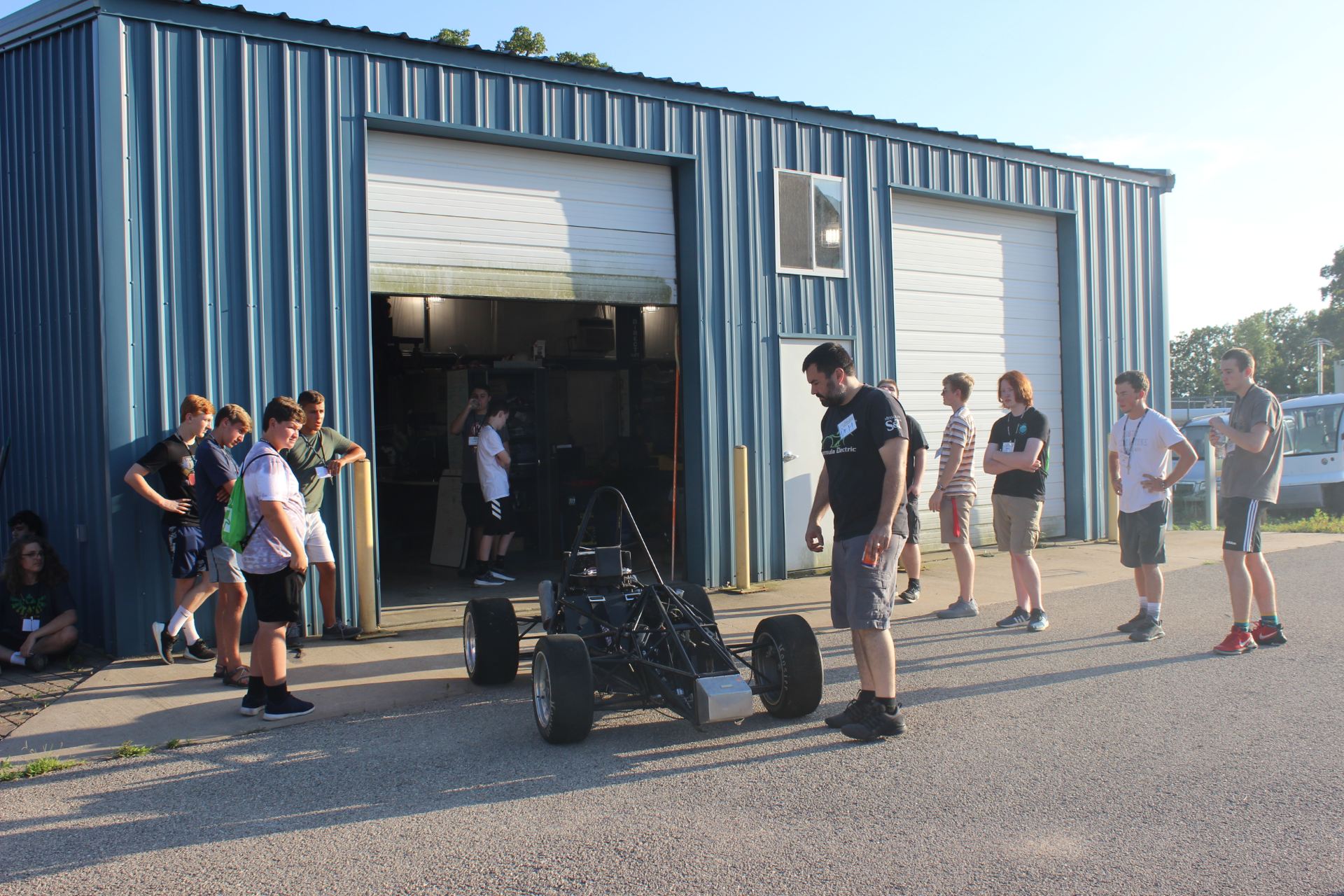
2021-2022 SEASON
The sights for a 2022 car fell through when all but 1 electrical and 2 mechanical members graduated. They designed and welded a car from scratch, but not enough of the electrical system was functioning in order for the 2022 car to be a reality. That summer, the team decided that it was a safety concern to continue to competition. All priorties set on further fostering a team and creating a working 2023 car
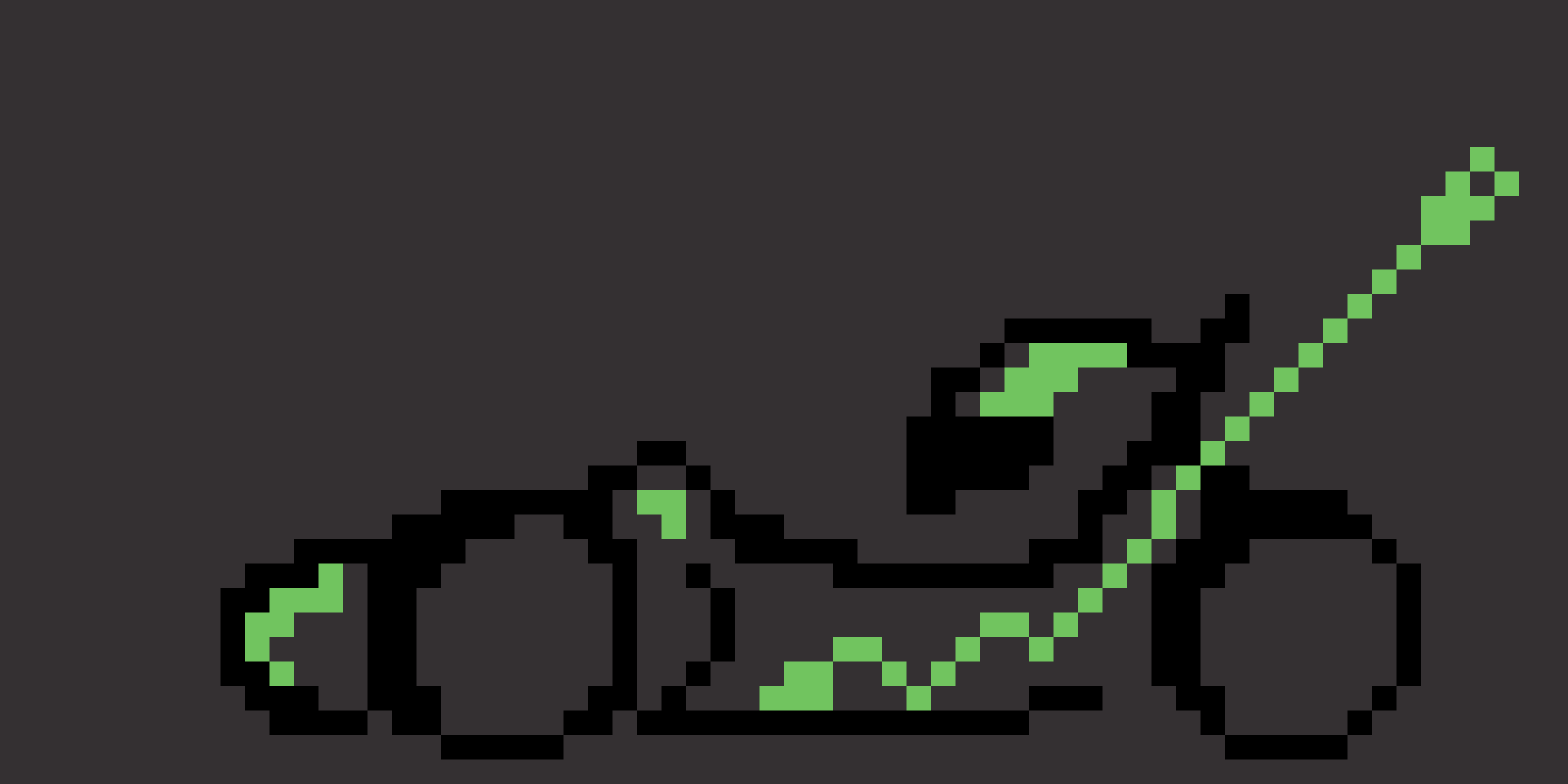
2020-2021 SEASON
2020 was a big hit on the team. Most of the team with knowledge about the car had graduated, so the team ultimately decided to shoot for a 2022 car.
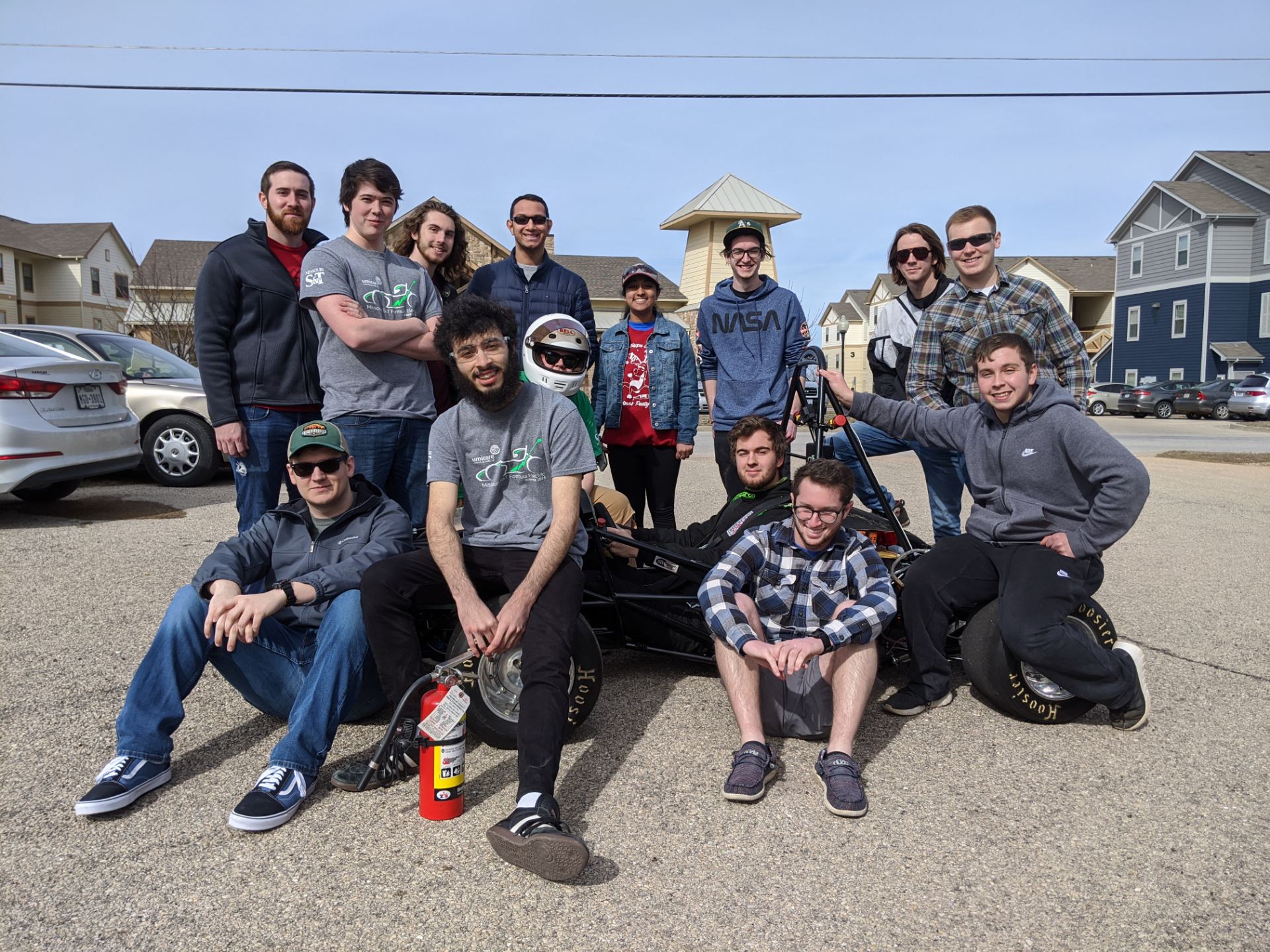
2019-2020 SEASON
The 2019-2020 season had a good start after the previous year, but like most events during 2020, the competition was held virtually. Our car was running, but eventually broke down in February of 2020. The shop closed shortly after, so a running car for competition was out of the picture.
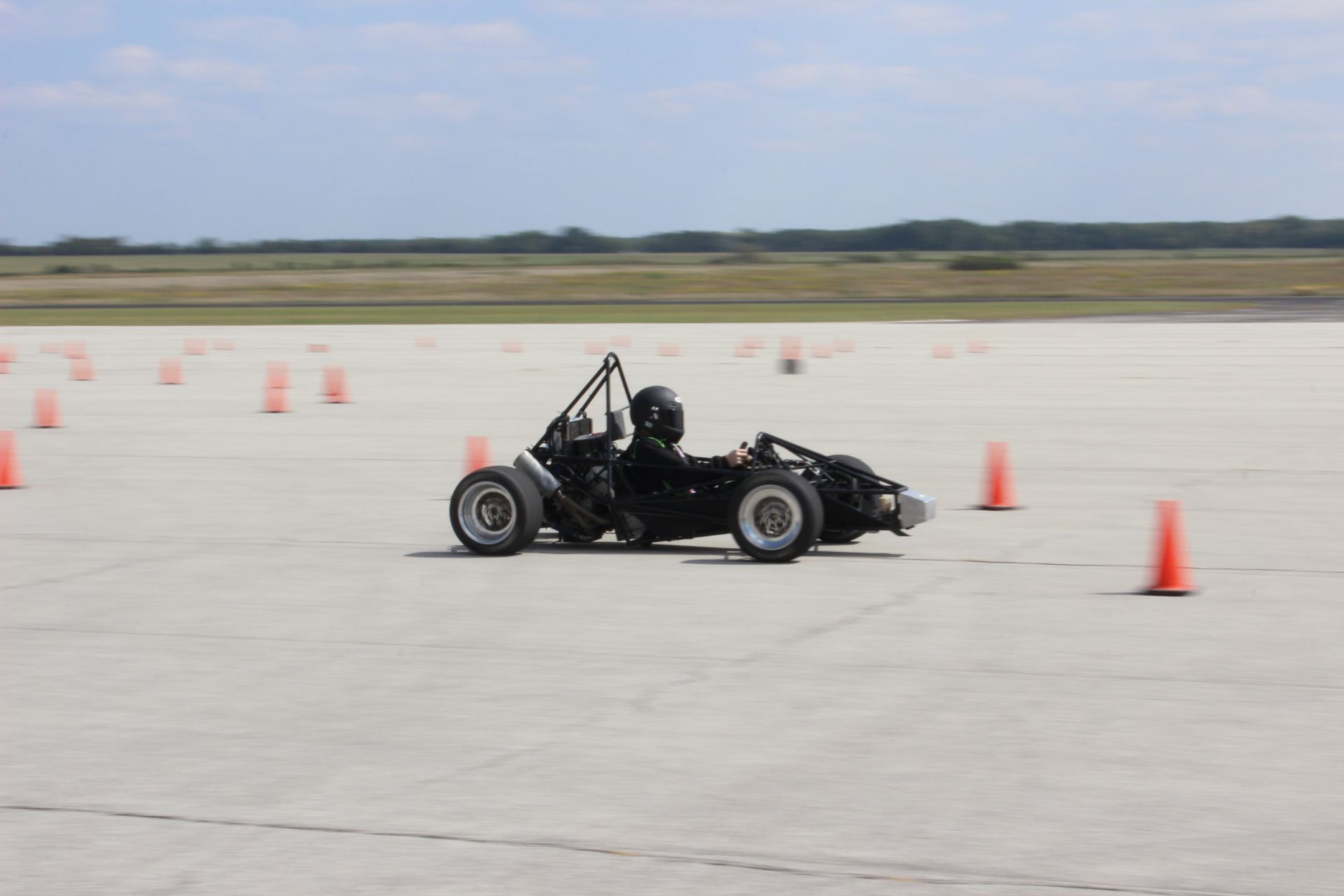
2018-2019 SEASON
The 2018-2019 season began as a transition period for the team. Due to low recruiting numbers in the previous year, the team was left with very few experienced members. Most of the knowledgeable and experienced members from the previous seasons graduated before this season, leaving a huge knowledge gap. One of the largest projects undertaken for the year was to remake the control system for the car, however, due to unforeseen circumstances (vendor manufacturing issues) and organizational issues, even though many improvements were made to the car, the team was unable to compete at the 2019 competition. This led to a large restructure in how the team operated. Several changes were made once the new officers took their position. Primarily, instead of relying so heavily on few members to be experts on the car, the team decided to push for a more standard knowledge base for all members by creating a database to record all processes, ideas, and designs. Furthermore, improved systems were implemented to keep everyone accountable, productive, and educated throughout the project. Even though the team did not attend competition, many good things came out of the season, primarily: a team who is organized and set up for success for many years to come.
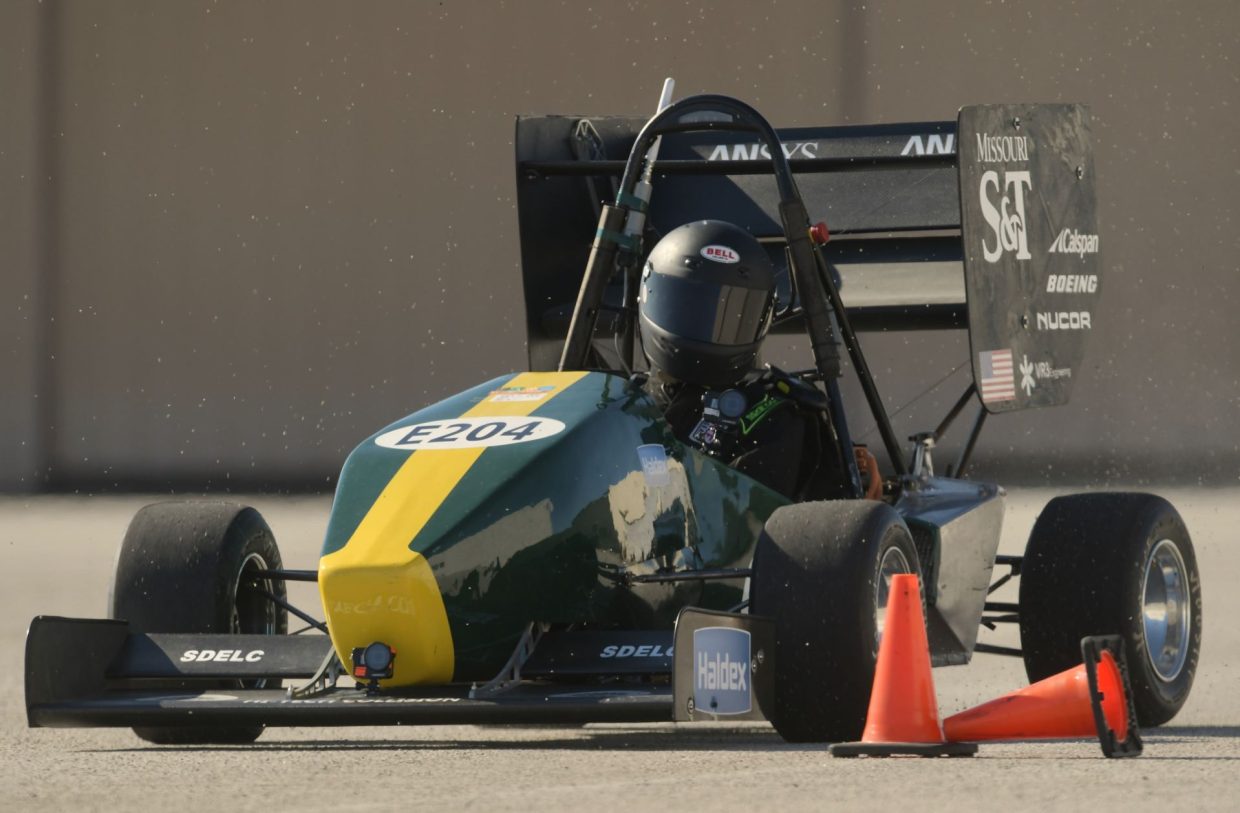
2017-2018 SEASON
The 2017-2018 season began on a low note. Our title sponsor pulled out of our project and recruitment was at an all-time low. Taking these setbacks into account, the team had to reevaluate their goals for the year and cut some projects due to manpower. The primary focus became a more predictable suspension system along with the team’s first aero package. Both these goals were met and surpassed, with the aero package also including a DRS (drag reduction system), proving the ambition of the team despite the earlier problems. Due to a mechanical failure however, the car did not pass brake inspection, it did however place 4th in the cost event, and 1st in the business event.
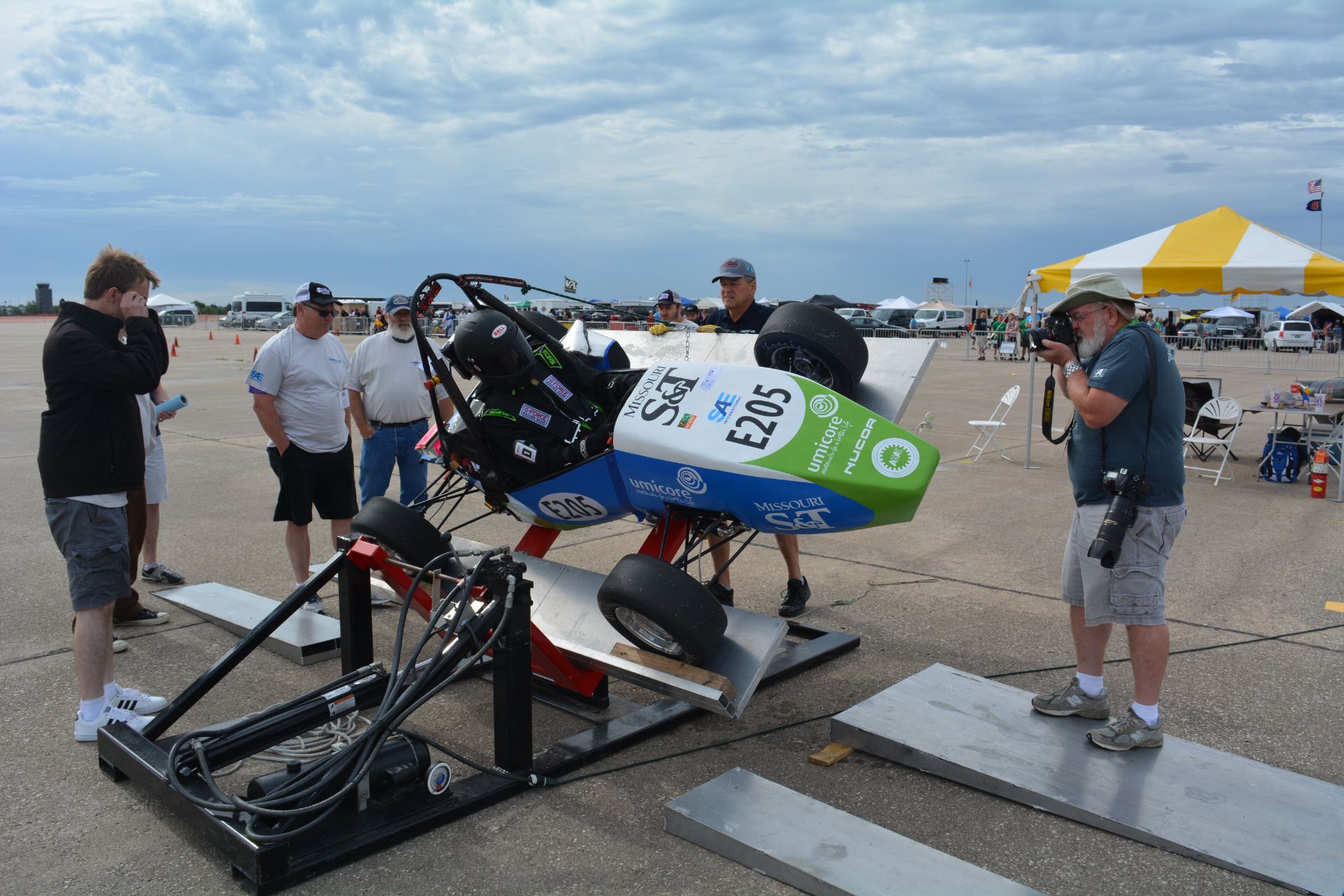
2016-2017 SEASON
The 2016-2017 season started with an analysis of how Fe02-Artemis had performed at competition. While the team was pleased with the overall result; there was a feeling that in the pursuit of rules compliance the car had become overbuilt. It was decided to focus the year’s efforts on redesigning the mechanical systems of the car and optimizing them for weight. The 2017 car, Fe03, was over 50 lbs. lighter than its predecessors and was the team’s most successful car to date. The team earned 4th place overall and was awarded trophies for their finishes in the cost (2nd) and efficiency (1st) events.
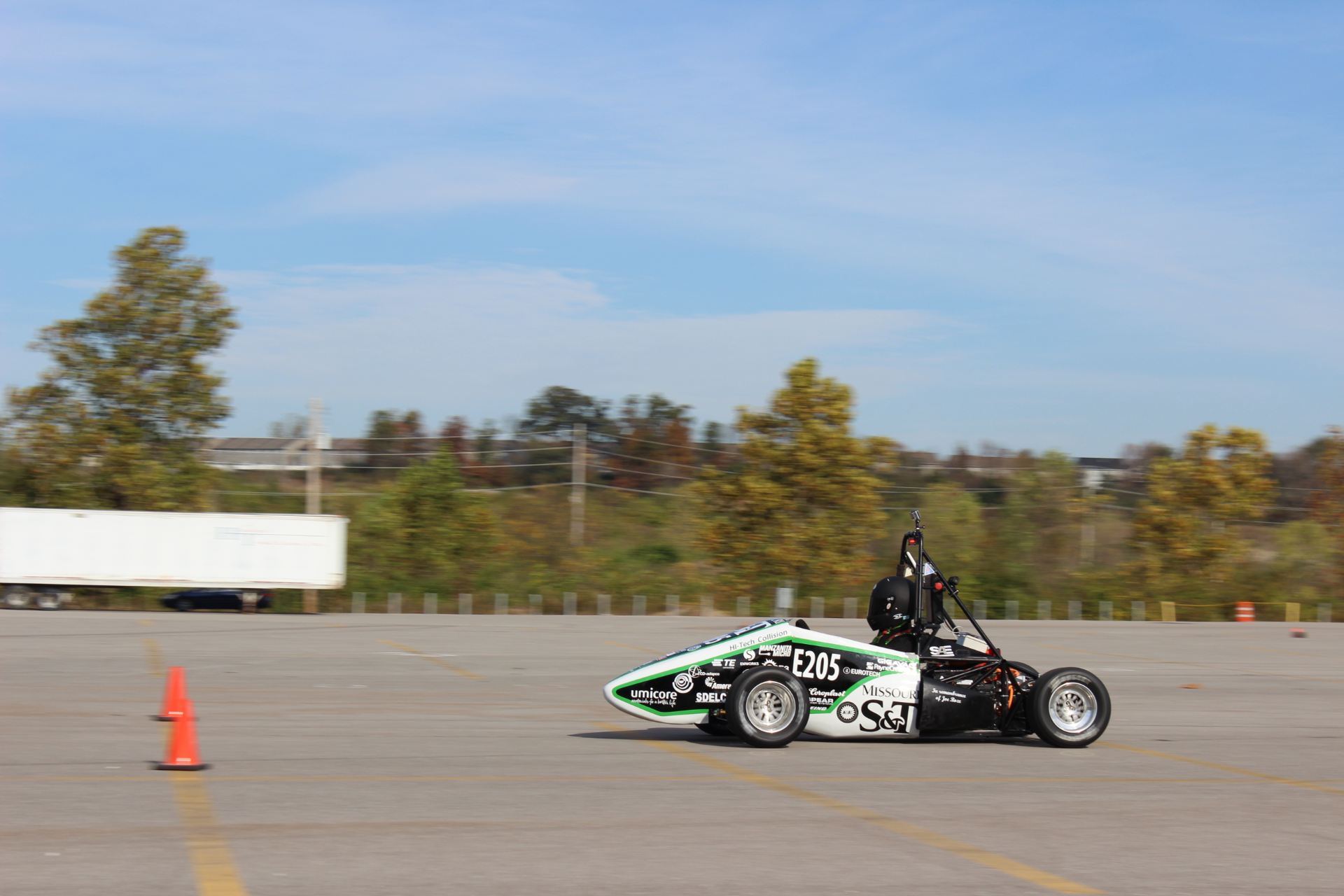
2015-2016 SEASON
By 2016, Formula Electric had established a core group of knowledgeable leaders. Using what they had learned from previous years, this group set out to design and produce an entirely new car that would be explicitly rules compliant. The team produced their second car, Fe02-Artemis, in just under a year. Artemis passed all technical inspections and participated in all the events at the 2016 competition. Despite an electrical issue that caused the team to drop out of the endurance race, Formula Electric earned their second 5th place finish.
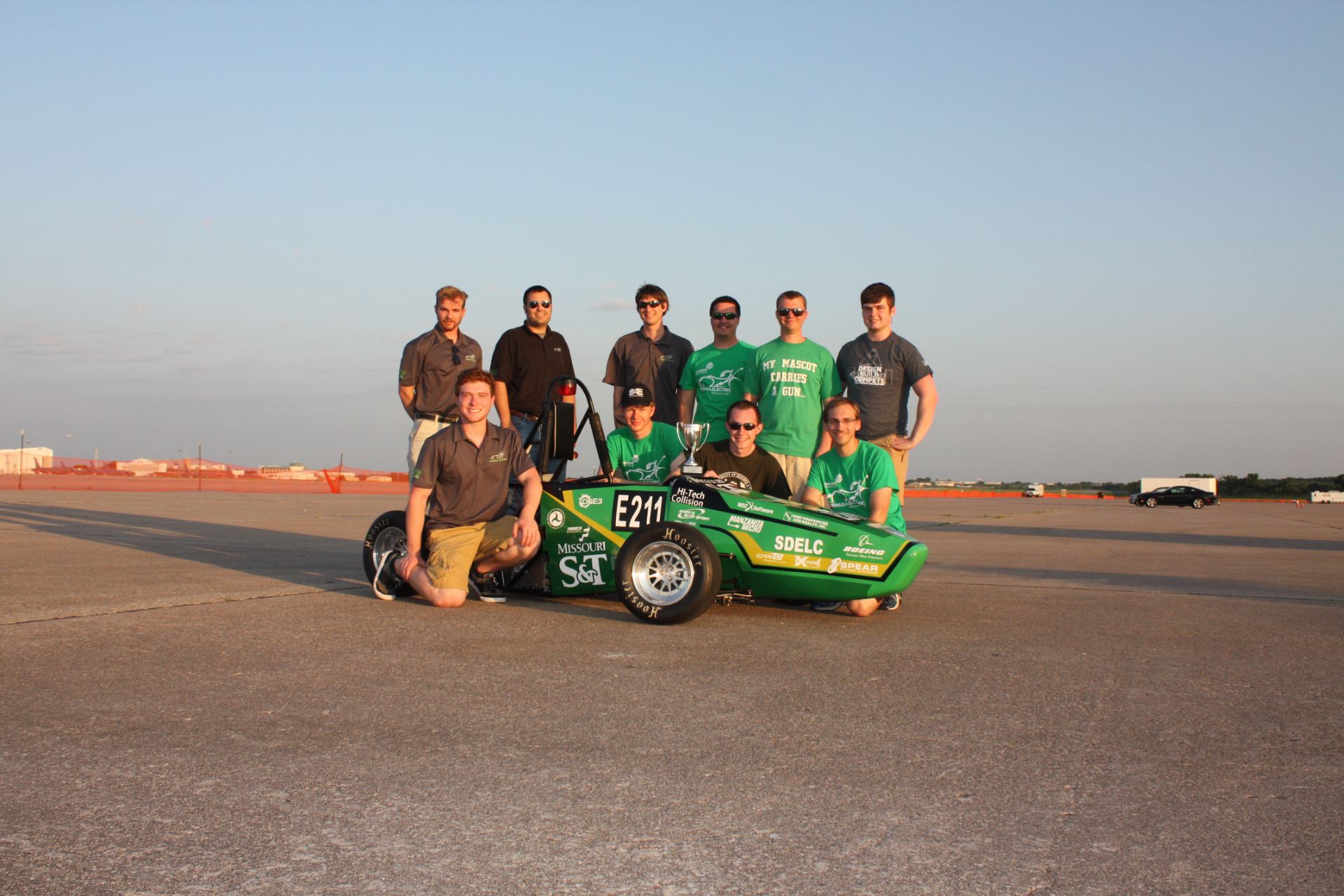
2014-2015 SEASON
Duchess entered into competition the 2015 season. Several team members attended the competition and used it to gather ideas about ways to improve the car for the next year’s competition. The car was fully functional, but a misinterpretation of the battery box rules prevented the team from competing in the dynamic events. In spite of this, the team earned 5th place overall thanks to their strong performances in the static events and received positive feedback on the mechanical design of the vehicle.
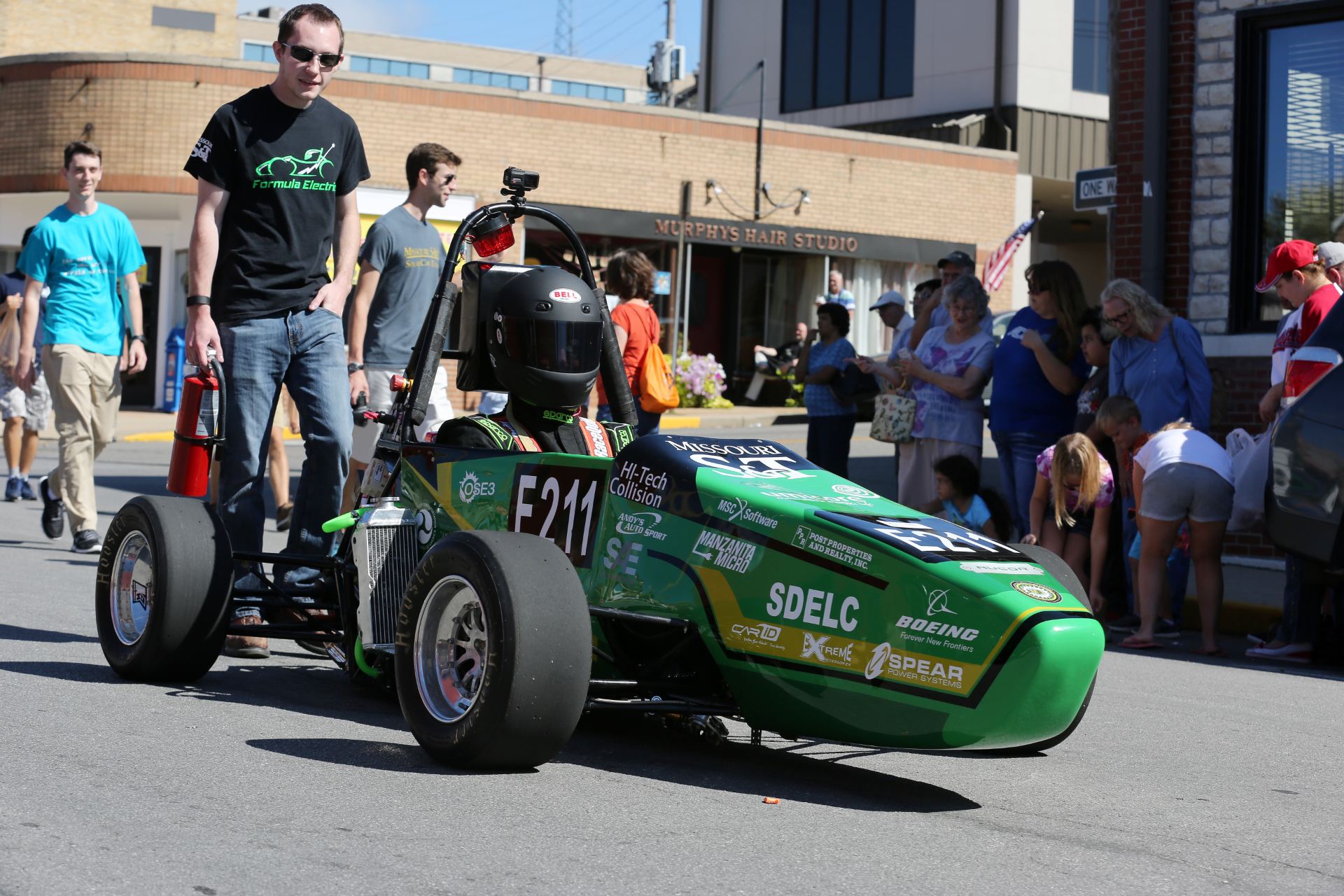
2013-2014 SEASON
Production of the first car, Fe01-Duchess, began in the fall semester of 2013. This was the team’s first attempt at a yearly production cycle and a significant amount of knowledge was gained in the first several months.

2012-2013 SEASON
The Formula Electric Team was founded in February of 2012 with the goal of participating in FSAE Electric by June of 2014. In 2013 the team established a knowledge base and sorted out the logistics that went along with starting the Formula Electric team.